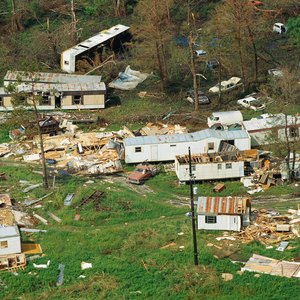
While a foreclosure is a specific legal action, it's also a process. Once your house is truly foreclosed and you have no ownership of it, you have almost no responsibilities to the home any more. When you're still going through the foreclosure process, the house is still yours and it's your responsibility. Given that lenders can sometimes intentionally delay the foreclosure process, your duties to your home can go on for a long time, indeed.
Property Maintenance
If you own the house, you generally have to keep it up, at least within your community's laws. Choosing to allow your yard to grow out, for instance, could leave you liable for fines from your city. On the other hand, if you actively cause damage to the house, such as through vandalism or through removing parts of your house for resale, you could be held liable whether or not you've been formally foreclosed. Once the bank actually takes ownership of the house, damaging it is akin to breaking into someone else's house and vandalizing it.
Insurance
Your lender will want to have its interest in your property insured. If you're paying for your own homeowners insurance that protects the property and covers the lender, you're fulfilling your obligation. If your insurance is paid through mortgage payments that you aren't making any more, eventually your policy will lapse. When that happens, your lender has the right to "force-place" insurance on the home, which protects the lender's interests, but not yours. In such a case, if you don't insure your property and your house catches fire or is robbed, you won't get anything back to protect you. Furthermore, the cost of that insurance will be billed back to you through the foreclosure process.
Property Taxes
Generally, property taxes go with the property. If you aren't personally liable for the taxes, not paying them will affect the property's title since it will end up with a lien for unpaid taxes. Your lender will probably pay the taxes, and could add what it pays during the time you're in the house back onto your balance. Once the lender takes ownership of the property through the foreclosure, though, your liability for the taxes ends completely.
The Loan
If you're in foreclosure, it usually means that you aren't making your loan payments. If the bank is able to get everything it's owed for your house through the foreclosure process, your responsibility for the loan will end. If you owe more than your house is able to be sold for, then you run the risk of being subject to a deficiency judgement. The laws on this vary from state to state, but if your state allows them, you could be responsible to pay your bank that difference for years to come.
References
Writer Bio
Steve Lander has been a writer since 1996, with experience in the fields of financial services, real estate and technology. His work has appeared in trade publications such as the "Minnesota Real Estate Journal" and "Minnesota Multi-Housing Association Advocate." Lander holds a Bachelor of Arts in political science from Columbia University.

